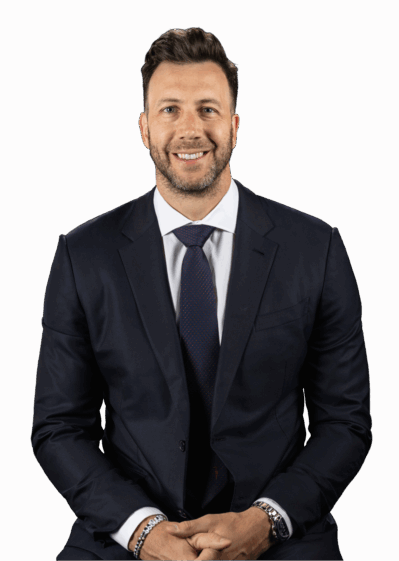
Case Study
From the National Football League to Philanthropist: Meet Connor Barwin, WG’23!
You are a team of young analysts working at an asset management company. The firm manages a diversified portfolio currently worth $100,000,000.
Your portfolio manager (your team’s teacher/advisor who makes the final investment decisions for your firm’s portfolio) recently met with a potential client, Connor Barwin of the Make the World Better foundation, who needs the firm’s help achieving some specific investment goals discussed below. Your team hopes to shape the winning investment strategy that Connor and the Make the World Better foundation ultimately choose to make a lasting community impact from an initial $500,000 investment.

Connor Barwin (WG’23) believes in the power of community.
The former National Football League (NFL) linebacker grew up in a civically minded family in Michigan that cared deeply about the nearby city of Detroit and contributed in different ways to the strength of their neighborhood. Connor also spent his childhood at local playgrounds and recreation centers, nurturing his lifelong passion for sports. All these experiences shaped his core values of community engagement and urban renewal.
When Connor signed a six-year contract to play football with the Philadelphia Eagles in 2013, it didn’t take long for him to form a deep personal and professional connection with his new hometown — a city celebrated for its vibrancy, rich history, and unmistakable grit.
That same year, Connor and his family established the Make the World Better (MTWB) foundation in Philadelphia. MTWB is dedicated to revitalizing public spaces and strengthening communities by building inclusive, safe, and inspiring places for people to gather, play, and thrive. MTWB works alongside local neighborhoods, ensuring that each project reflects the needs and dreams of the community it serves.
Over the past decade, MTWB has invested more than $30 million in capital improvements to public spaces across Philadelphia. Projects have ranged from multi-purpose parks and athletic fields to community centers that host creative writing programs, basketball leagues, and music events. Importantly, MTWB emphasizes deep community engagement in every project, ensuring lasting stewardship, authentic partnerships, and meaningful outcomes.
“Wharton made me think more about the sustainability of a nonprofit, and the importance of building strong partnerships to keep the work going.”
After retiring from the NFL in 2019, Connor continued his career in football by moving into a front-office role with the Eagles, while also pursuing his MBA at the Wharton School, which he completed in 2023. His time at Wharton proved transformative, giving him a broader, systems-level perspective about both football operations and nonprofit leadership. The experience helped him step back, ask new questions, and approach challenges with a more strategic lens. Today, those lessons guide his leadership at MTWB, where he emphasizes sustainability and the importance of strong partnerships to ensure the foundation’s impact endures.
Connor’s Financial Goals for MTWB
Connor would like to grow his initial MTWB investment of $500,000 into a fund of at least $1.5 million over the next 10 years, supporting capital projects that revitalize public spaces and inspire long-lasting community pride.
However, Connor did inform your portfolio manager that starting the end of year three (2029), he will make an annual drawdown from the fund of $10,000 to support grassroots community programs and ensure MTWB can maintain a direct, visible impact in neighborhoods year after year. As the fund grows, he hopes annual contributions to community engagement can rise above $10,000, expanding reach and impact.
By 2036, MTWB’s fund will be ready to invest in a truly transformative capital project, one designed to leave a lasting, visible legacy for Philadelphia’s neighborhoods.
This project will bring new life to community centers and parks, ensuring they remain safe, welcoming, and vibrant gathering spaces for generations to come. Improvements may include:
- Modernized facilities with upgraded courts, regraded fields, and refreshed facades,
- Safer, brighter environments with new LED lighting, fencing, and power system upgrades,
- More comfortable spaces with enhanced seating, shaded areas, and accessible entryways, and,
- Community-ready features like AV systems, portable stages, and shared equipment to support events, performances, and celebrations.
Together, these updates will not only repair and modernize existing spaces but also create opportunities for connection, play, and cultural expression. MTWB’s goal is to help every community member feel proud of and inspired by the places where they gather, grow, and celebrate.
Every dollar invested reflects MTWB’s values — community-first, locally rooted, and sustainability-minded.


